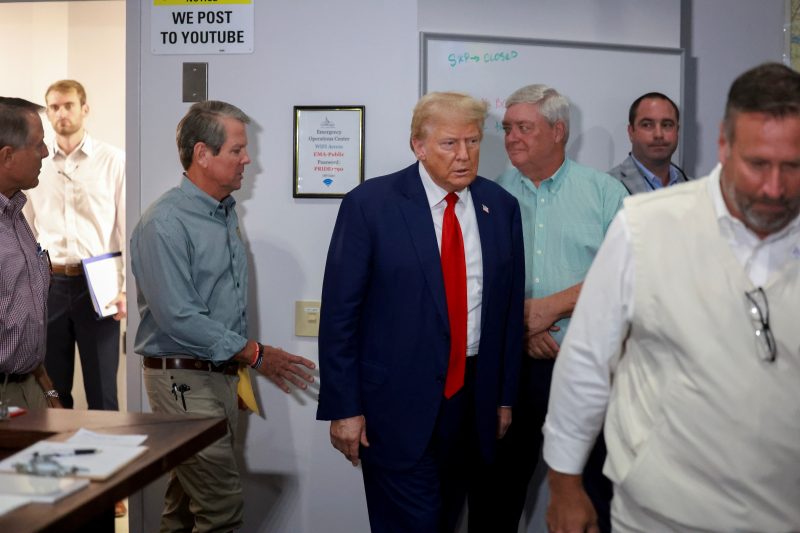In recent years, the United States has faced numerous natural disasters that have tested the ability of government officials to respond effectively. One notable figure who has been involved in various disaster responses is former President Donald Trump. Throughout his time in office, Trump has faced criticism for his handling of natural disasters and the spread of misinformation during these crises.
One key example of Trump’s response to a natural disaster is Hurricane Maria, which devastated Puerto Rico in 2017. In the aftermath of the hurricane, Trump faced backlash for downplaying the severity of the storm and its impact on the island. He famously claimed that the death toll in Puerto Rico was inflated by Democrats to make him look bad, despite overwhelming evidence to the contrary.
Trump’s handling of Hurricane Maria highlighted a pattern of misinformation and mismanagement in his disaster responses. Instead of providing accurate information and promoting unity in times of crisis, Trump often chose to spread false narratives and prioritize his own image over the needs of those affected by the disasters.
Another instance of Trump’s misinformation during natural disaster responses occurred during the wildfires that ravaged California in 2018. Trump repeatedly blamed poor forest management for the fires, ignoring scientific evidence that climate change played a significant role in their intensity and frequency. By spreading misinformation about the wildfires, Trump not only failed to address the root causes of the disasters but also undermined efforts to mitigate their impact in the future.
It is crucial for leaders to provide accurate information and support during natural disasters to ensure the safety and well-being of affected communities. Trump’s tendency to peddle misinformation in disaster responses not only eroded public trust but also hindered the effectiveness of relief efforts. Moving forward, it is essential for government officials to prioritize the dissemination of factual information and prioritize the needs of the people when responding to natural disasters.
In conclusion, Trump’s history of spreading misinformation during natural disaster responses has highlighted the importance of transparent and responsible leadership in times of crisis. By learning from past mistakes and holding leaders accountable for their actions, we can work towards ensuring more effective and compassionate disaster responses in the future.



























